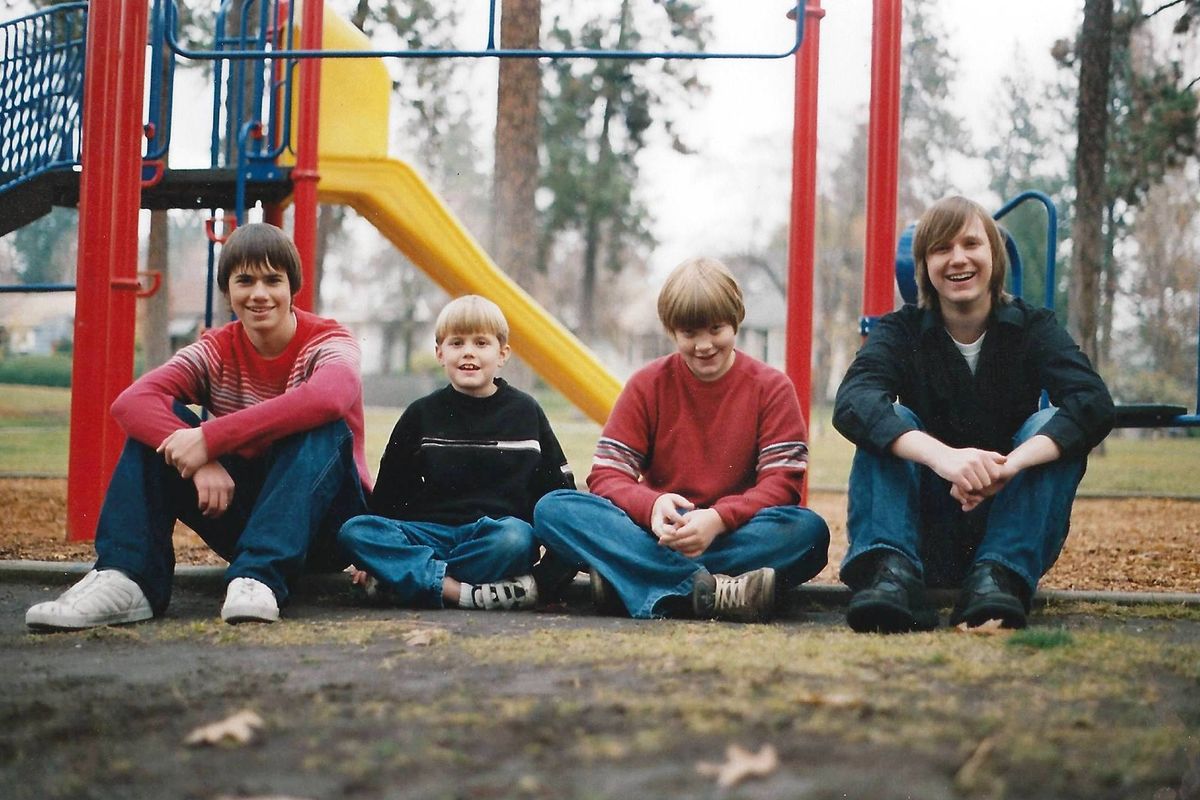This column reflects the opinion of the writer. Learn about the differences between a news story and an opinion column.
Front Porch: Finding truth in movies about boys

A little boy in World War II-ravaged Germany whose invisible friend is Adolph Hitler.
A young man with Down syndrome yearns to become a professional wrestler like his idol, the Salt Water Redneck.
And a boy’s battle with addiction baffles his doting father.
Recently, we watched three movies in one week. An unexpected COVID-19 gift is ample time to catch up on films we’d intended to see in the theater.
I had no idea that “Jojo Rabbit,” “The Peanut Butter Falcon” and “Beautiful Boy” would share a common theme. Each film features boys surviving the best way they can in an often cruel and unforgiving world.
When our youngest son raved about “Jojo Rabbit,” I was skeptical.
“It’s really funny,” Sam insisted.
I didn’t think Hitler as an invisible friend would offer much comedic gold. I was wrong.
The movie is equal parts hilarious and heart-rending, because no matter how many laughs you can mine from a wacky Adolph (“I gotta go, we’re having unicorn for dinner at my place tonight!”) the reality is Jojo and his mother are struggling to survive.
The 10-year-old is enamored with Nazi ideals, and pledges his life to the cause. Then he finds out his mother is hiding Elsa, a Jewish girl, in their attic. It’s a terrible secret to keep, but Jojo discovers as Elsa says, “We’re (Jews) like you, but human.”
He’s just a child, so when his mother tells him that love is more powerful than warped ideologies and is the strongest thing in the world, he replies, “I think you’ll find that metal is the strongest thing on Earth, followed by dynamite and then muscles.”
Slowly, Jojo’s belief in Nazism crumbles as the cause disintegrates in the rubble of bombed-out cities.
“The Peanut Butter Falcon” refers to the name the main character chooses to call himself as he makes his way to a North Carolina wrestling school run by his favorite professional wrestler, the Salt Water Redneck.
The actor Zack Gottsagen and the character (Zak) he plays have Down syndrome. Zak has been placed in a nursing home after the death of his mother, even though he says, “I am young. And I am not old.”
He makes his escape, determined to meet his wrestling hero, and encounters a grieving crab fisherman along the way, striking up an unlikely friendship.
“Maybe we could be friends and buddies … bro dogs … and chill. Have a good time!” Zak says.
When his caregiver from the retirement home catches up to him, she has some decisions to make about the nature of family, and what really makes life worth living.
Far more sobering (literally) “Beautiful Boy” traces the havoc addiction creates in family. Based on the memoirs “Beautiful Boy: A Father’s Journey Through His Son’s Addiction,” by David Sheff, and “Tweak: Growing Up on Methamphetamines,” by Nic Sheff, it’s a brutally honest look at how a kid who seemingly had everything loses it all to addiction.
“I need to find a way to fill this black hole in me,” Nic says.
His divorced parents send him to treatment program after treatment program, but sobriety is fleeting.
“There are moments that I look at him, this kid that I raised, who I thought I knew inside and out, and I wonder who he is,” says the grieving father, played by Steve Carell.
He holds on to the memory of the beautiful boy his broken son used to be.
“If you could take all the words in the language, it still wouldn’t describe how much I love you. And if you could gather all those words together, it still wouldn’t describe what I feel for you. What I feel for you is everything. I love you more than everything,” he tells Nic.
As the mother of four sons, movies about boyhood tug at my tender heart.
This world is often hard on little boys and raising them into men isn’t a task for the weak-willed. So many bumps along the way, so many times my husband and I looked at each other and wondered what the heck are we doing?
Let’s just say there are myriad parenting issues that aren’t covered in “What to Expect When You’re Expecting.”
A boy survives the cruelty and carnage of the Nazi regime and discovers a well of compassion and empathy for the “other” among us.
A young man meets his wrestling idol and creates a new family along the way.
And a broken boy survives years of addiction, while he and his father learn to make peace with their journeys.
Only one of these stories is true.
But the themes of resilience, compassion and courage mirror my own experience in raising sons.
Beautiful boys, every single one.